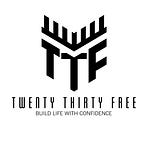Why the Information Age Is a Writer’s Paradise
The digital revolution and publishing equity
The ways we consume written content in the modern era can feel overwhelming. We consume content curated for us by search engines, publishing houses, social-media platforms, text messages, and even billboard advertisements on the street.
In the face of overwhelming information, I soon realized early into my writing endeavors that writers living in this century should see it as a privilege instead of a liability. While the risk of burnout and overstimulation still runs deep but the opportunities presented in this modern market are unparalleled when compared to the markets of the past.
The ever-expanding archives
The modern age as we know it is filled with an almost embarrassing amount of text. Compared to the centuries of yesteryear when libraries, universities, schools, publishing houses, government archives, and business archives were responsible for holding the world’s printed knowledge, you’d be forgiven if you saw the digital age as a pseudo-Library-of-Babel that expanded in pace with the universe itself.
In this pseudo-library, the amount of text existing on both hard copies and digital screens almost goes beyond the realms of human comprehension. No longer bound by the traditions of paper and ink, a simple thought, question, idea, or answer can be written and transmitted almost instantly. Provided that multiple parties have the means to do so, information can travel across continents with the simple button-press.
While human writings of any kind have persisted for millenniums, the art of transmitting stored information across continents in a format that can withstand natural disasters is in infancy. Even if the historical Library of Alexandria could be burned, one would be hard pressed to try and burn the entire Internet, let alone every digital copy of whatever it is they’re trying to destroy.
Imagine that you are someone who identifies as a writer; perhaps you’re a short-story writer, novelist, aspiring journalist, editor, content creator for an online publication, or one of many other professions that fall under this umbrella. In ages past, unless your ideas were written down and distributed to those who read, they had no chance of seeing the light of day; let alone get published in major circles.
Even literary spheres such as peer-reviewed-journals only accept so many submissions a year from researchers looking for the opportunity to publish their work. In the information age — where anything can be written, blogged, or distributed to the endless annals of search engines, websites, and social-media platforms — more writers are electing to publish their own work. While established newspapers and journals still retain editorial decisions, there are near-limitless tools for writers to try and take charge of their own destiny.
Because It isn’t just the ability to transmit words and information stored on digital servers that makes the Information Age so spectacular…
…it’s the ability for writers to get paid for their work as well.
The dollar equation
In fact, the sheer number of ways for writers to get paid is mind boggling. Websites like Medium and Quora allow for writers to get paid for their work based on reading engagement. Other websites like Fiverr and Upwork allow writers to charge a flat rate based on the type of writing their clients demand. If you offer specific services such as copywriting, editing, or stenography, then you can use the multi-layered tools offered on these websites to help gain traction for your voice. This doesn’t even scratch the surface of possible collaboration with filmmakers if scripts are needed for videos.
The modern blogosphere has been around for at least two decades and has evolved to contain information about niche-hobbies, current-events, editorials, and pretty much any topic you can think of. Bloggers that run advertisements or affiliate programs have realized that it’s not just reader engagement that makes blogs work; it’s the products and services they can offer as well. A simple blog charting the latest news and updates in the worlds of tech, business, finance, or fashion can turn into a gold mine if monetized correctly.
The adage of ‘it’s not what you know, it’s who you know’ will still prove true in some circles. That’s why the opportunities afforded to writers to market their content are plentiful. Perhaps you want to make a website for your brand and the services you offer. Perhaps you want to take advantage of the advertising capabilities of Facebook, Twitter, Reddit, or other platforms. The online tools we have today would even send struggling authors from three decades ago into a frenzy.
A theoretical conversation between two friends could go something like this.
‘Are you having trouble publishing your work?’
‘Yeah. I keep getting rejection letters and emails every time I try.’
‘Publish it online. The whole internet can’t reject you all at once.’
There you have it.
An inevitable conclusion
While it isn’t necessarily easy to make a living solely from writing — it never has been — there are more tools and opportunities during this age than ever. This is also not to say that a single ad-campaign on a social-media will absolve any aspiring creator of failure. All this says is that the opportunities granted to writers who don’t have connections, don’t have massive amounts of wealth stored away, or have a job at traditional publishing outlets are larger than what any writers from previous decades could have imagined.
The opportunity to add your voice to the world is yours for the taking…
…and what a wonderful opportunity it is.
